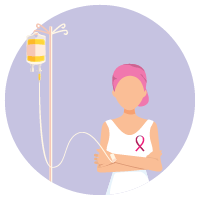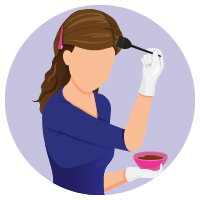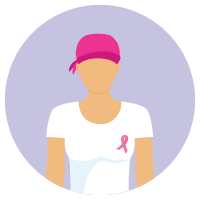What is cancer?
Cancer is the growth of cells gone wrong. Damage to the DNA of the cell, due to reasons like chemical or radiation exposure can cause a cancerous change in any cell of the body.
Why is cancer not like other diseases?
Cancer is not like diabetes or hypertension. These are mainly age-related; they mostly do not cause life-threatening symptoms and immediate danger. Diabetes and hypertension are controlled by medication and can cause organ damage over 10-15 years. Whereas cancer is fast-growing, spreads over months, and usually needs aggressive treatments like chemo, targeted therapy, surgery, and radiation.
Can an unhealthy lifestyle cause cancer?
Certainly, smoking is directly related to lung cancer. 90% of lung cancer patients have smoked or consumed tobacco in some form. Other habits such as alcohol intake, obesity, high fat diet, stress, lack of exercise, directly increase your risk of developing cancer.
Is chemotherapy more harmful than useful?
Chemo does cause hair loss, tiredness, mouth ulcers, and diarrhea. But it is important to note that all of these side effects are only temporary, and a patient fully recovers from them. Only in 0.1% of cases can chemotherapy cause heart damage.
Do underwire bras, deodorants, and hair dye cause cancer?
According to studies, underwire bras and deodorants have been deemed safe. Semi-permanent dyes are also considered safe. Though in recent times there has been a study that has associated permanent dyes and perming treatments with the risk of developing breast cancer.
Does genetics play a role in cancer?
If neither of your parents or close relatives has had cancer, your chances of getting it are low. Only five to ten percent of all cancers are hereditary. If two or more members of the family suffer from a certain kind of cancer, then you are at a risk. E.g. breast and ovarian cancer history from either of the parent’s side puts you at risk as well.
Can cancer be cured?
Yes, if diagnosed in early stages like stage 1 and stage 2, the cure rates are over 90% and 80% respectively. In stage 3, cure rates fall to 50%. Even patients with stage 4 who are not cured can live with cancer for over 3 to 8 years.
What are some of the newer treatments?
The last 15 years have seen some major advances in cancer treatment; surgery has become less extensive and is aimed at preserving organ function and appearance. Radiotherapy has become precise, treating only tumor tissue while sparing normal structures. Apart from chemotherapy, newer oral treatments like targeted therapies and immunotherapy are increasingly being used.







